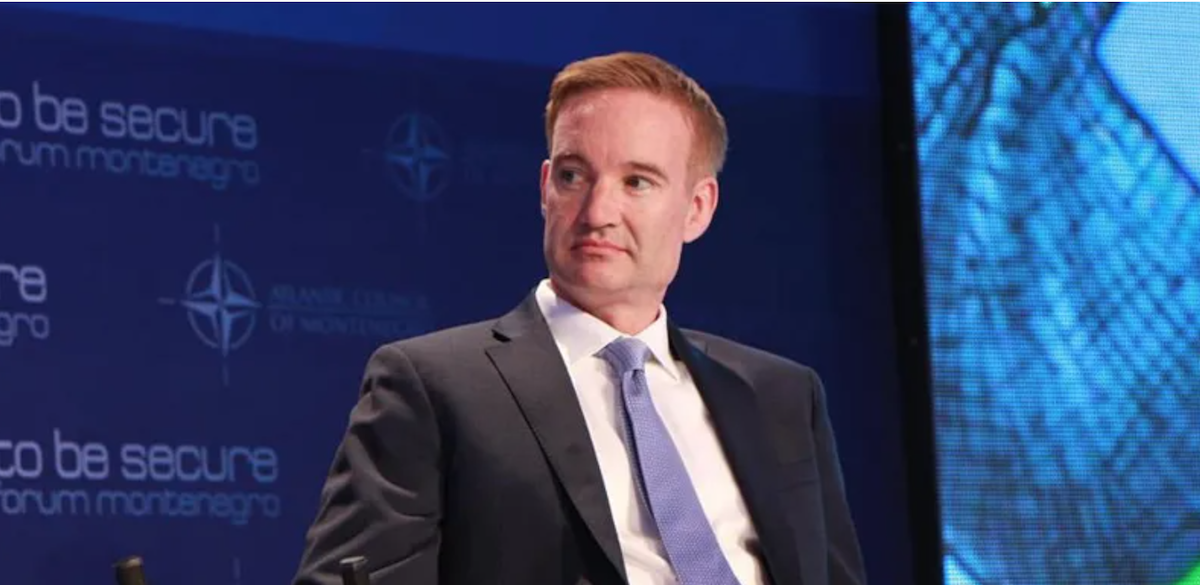
On September 16, the U.S. Department of the Treasury’s Office of Foreign Assets Control (OFAC) announced sanctions against four Georgian citizens: head of the Special Forces department at the Ministry of Internal Affairs Zviad Kharazishvili (known as “Khareba”), his deputy Mileri Lagazaouri, and pro-Russian Alt-Info movement leaders Koka Morgoshia and Zura Makharaidze.
Additionally, the State Department imposed visa restrictions on over 60 members of the Georgian government and parliament, including their families.
It is said that the list also includes business leaders involved in corruption, as well as those spreading disinformation and violence.
The sanctions were imposed for brutal crackdowns on peaceful protestors and political opponents, against those responsible for or complicit in, or have directly or indirectly engaged in violently suppressing the exercise of the freedom of peaceful assembly of Georgians engaged in the democratic process and peaceful expression.
All four individuals are being designated pursuant to Executive Order (E.O.) 13818, which builds upon and implements the Global Magnitsky Human Rights Accountability Act and targets perpetrators of serious human rights abuse around the world.
As a result of today’s action, all property and interests in property of the designated persons described above that are in the United States or in the possession or control of U.S. persons are blocked and must be reported to OFAC.
In addition, any entities that are owned, directly or indirectly, individually or in the aggregate, 50 percent or more by one or more blocked persons are also blocked.
OFAC’s regulations generally prohibit all transactions by U.S. persons or within (or transiting) the United States that involve any property or interests in property of designated or otherwise blocked persons. U.S. persons may face civil or criminal penalties for violations of E.O. 13818.
Non-U.S. persons are also prohibited from causing or conspiring to cause U.S. persons to wittingly or unwittingly violate U.S. sanctions, as well as engaging in conduct that evades U.S. sanctions.
In addition, financial institutions and other persons that engage in certain transactions or activities with the sanctioned entities and individuals may expose themselves to sanctions or be subject to an enforcement action.
The prohibitions include the making of any contribution or provision of funds, goods, or services by, to, or for the benefit of any designated person, or the receipt of any contribution or provision of funds, goods, or services from any such person.
“Today’s action underscores our concern about the consequences of anti-democratic actions in Georgia and efforts by key individuals to use violence and intimidation to achieve their aims,” said Acting Under Secretary of the Treasury for Terrorism and Financial Intelligence Bradley T. Smith.
“The United States remains committed to holding accountable those who seek to undermine the rights of the Georgian people.”
On May 23, 2024, Secretary of State Antony Blinken announced a new visa restriction policy targeting individuals responsible for enacting the “foreign agents” law. He also revealed that the U.S. is conducting a comprehensive review of all aspects of its cooperation with Georgia.
Shortly thereafter, visa restrictions were imposed on more than 30 members of the Georgian government and parliament, who were deemed responsible for violence and intimidation against civil society and threats to the freedom of peaceful assembly.
On July 5, the U.S. Department of Defense announced that the Noble Partner military exercises, scheduled for July 25 to August 6 in Georgia, have been postponed indefinitely. The statement indicated that the decision was made following the U.S. initiation of a review of bilateral relations with Georgia.
On July 31, it was also reported that American lawmakers had written to Blinken, calling for financial sanctions against Bidzina Ivanishvili.


